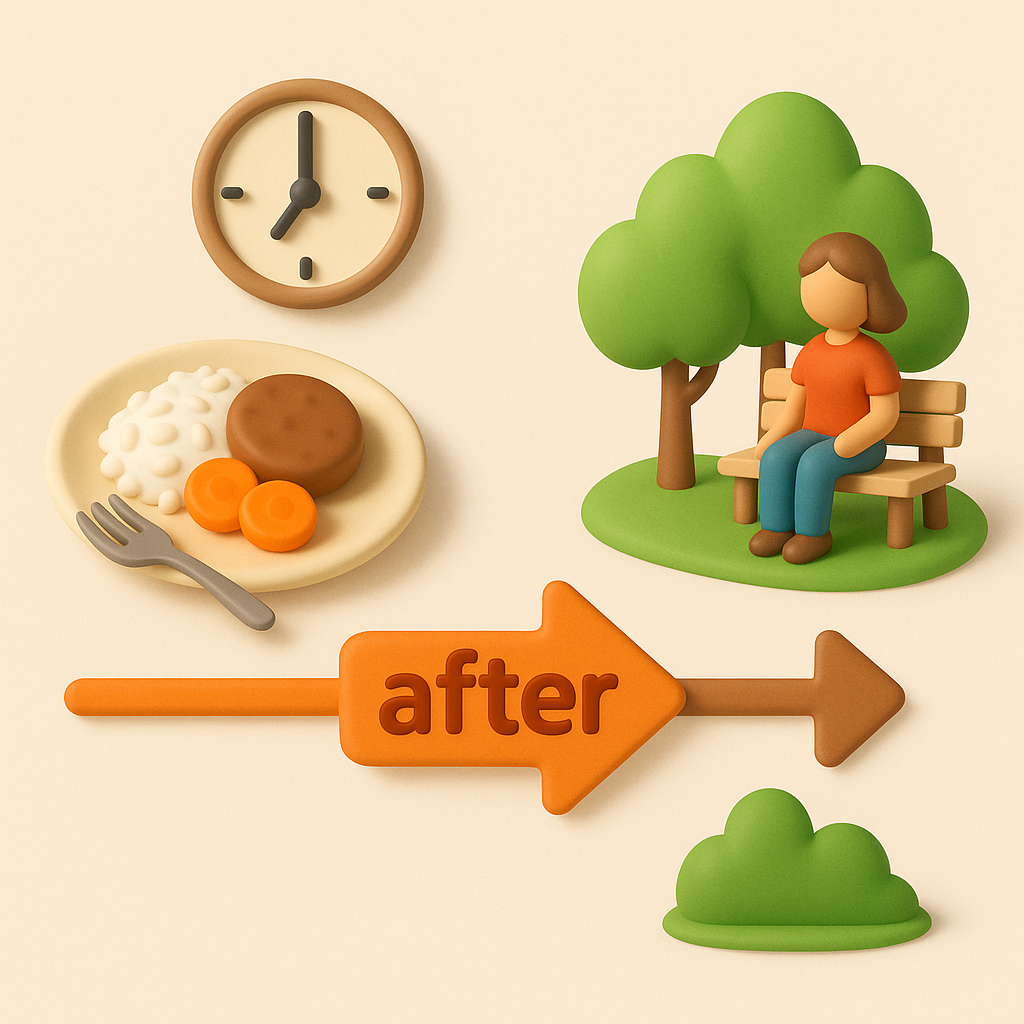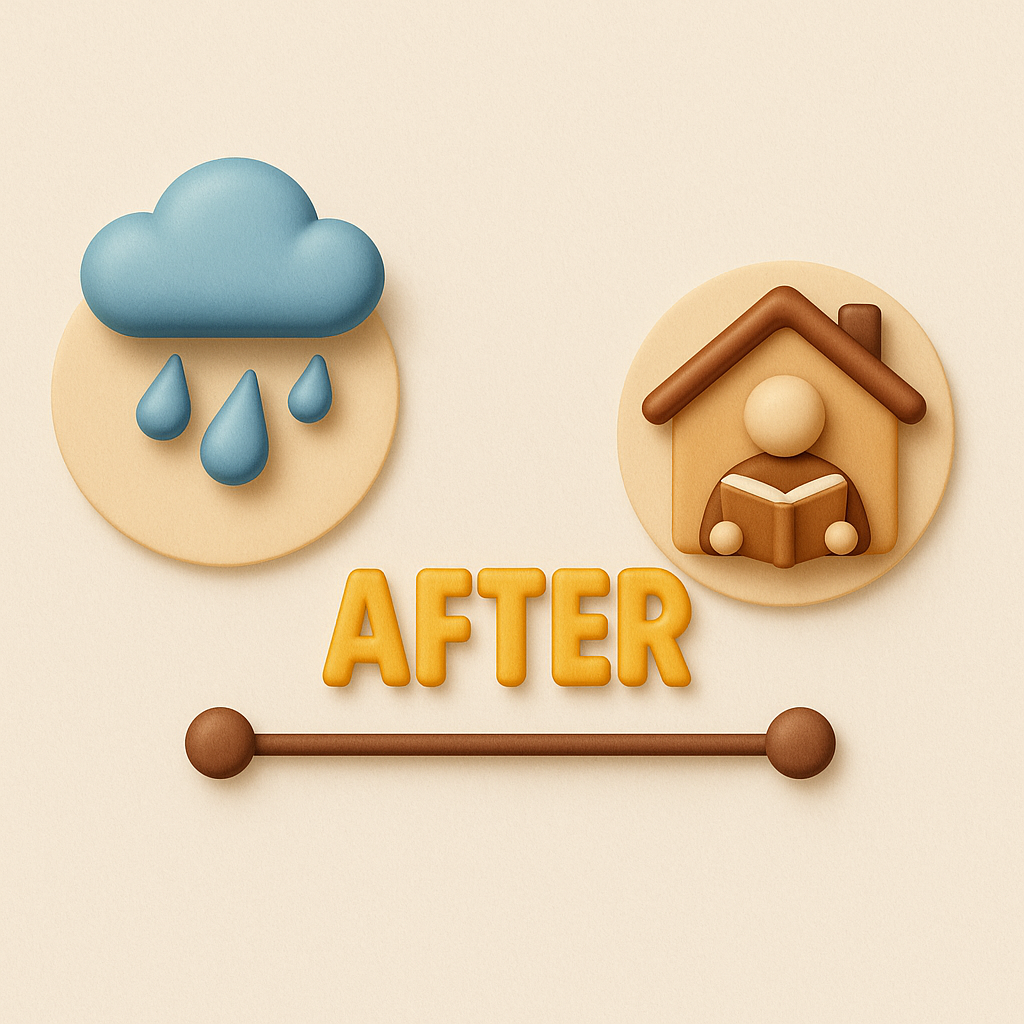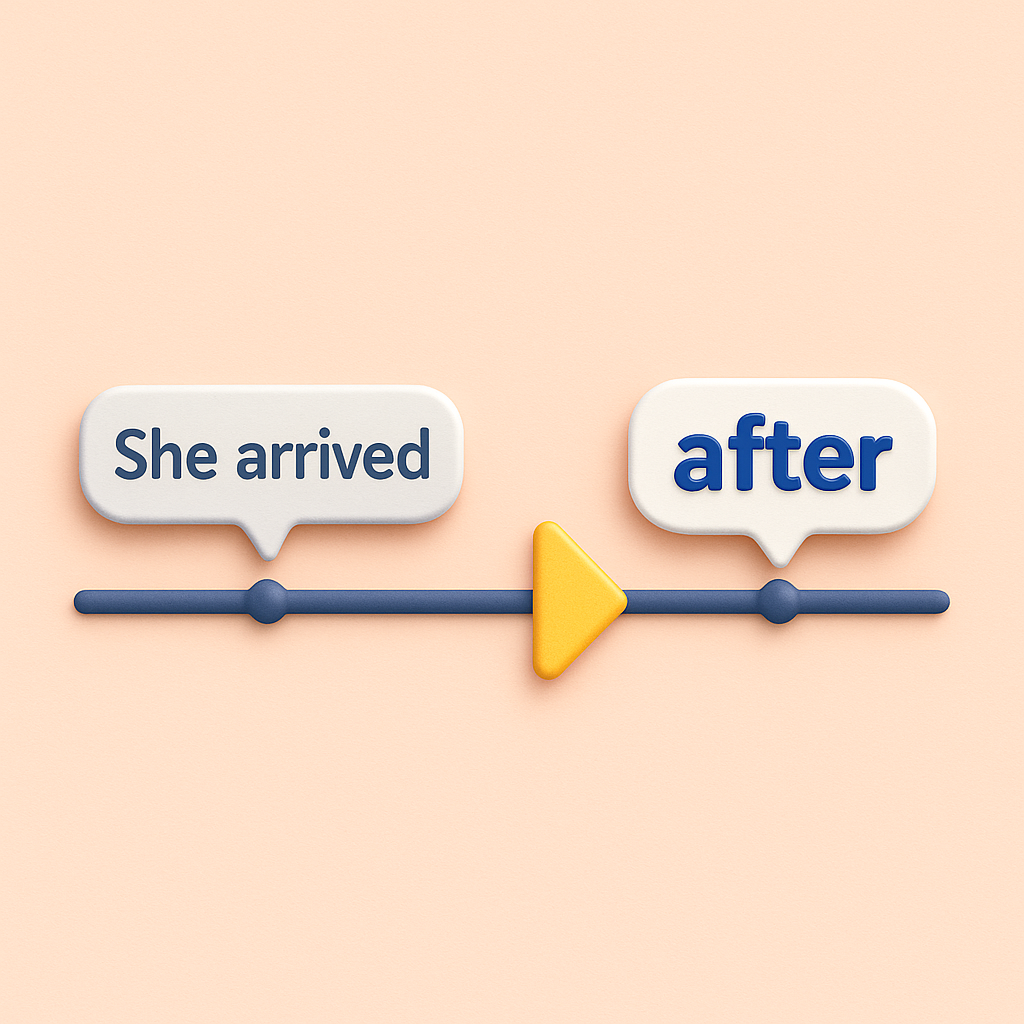After
Definition
After can function as a preposition, conjunction, adverb, and adjective. It is used to indicate that something follows another in time, order, or position.
Parts of Speech
- Preposition
- Conjunction
- Adverb
- Adjective
Pronunciation
American English
- IPA Pronunciation: /ˈæftər/
- Respelling: AF-tur
British English
- IPA Pronunciation: /ˈɑːftə/
- Respelling: AHF-tuh
The pronunciation of "after" varies between American and British English, especially in the vowel sound of the first syllable.
Etymology
The word "after" originates from the Old English word "æfter," which meant "following" or "later in time." It is derived from Proto-Germanic "*aftaro," indicating position or time behind something.
Derivatives
- Afterward (adverb)
- Afterlife (noun)
- Aftereffect (noun)
- Afterthought (noun)
- Aftertaste (noun)
Synonyms
- Following
- Subsequent to
- Later
Antonyms
- Before
- Prior to
- Preceding
Usage
The term "after" is widely used to show sequence in time or order. For example, "He arrived after the meeting started," or "She went home after dinner."
Related Terms
- Following: Coming directly behind or later.
- Subsequent: Occurring or coming later in time.
- Later: Happening at a time after the present.
Detailed Definitions
Preposition
- Following in time or sequence: Used to indicate something that happens later in time.
- Example: "We went to the park after lunch."
- In pursuit of or in search of: Refers to following or seeking someone or something.
- Example: "The dog ran after the ball."
Conjunction
- Subsequently to the time that: Used to connect two clauses where one follows another in time.
- Example: "We stayed inside after it started raining."
Adverb
- Later in time or behind in place: Refers to occurring or positioned behind something.
- Example: "She arrived shortly after."
Adjective
- Coming later in time or subsequent: Used to describe something that happens or is positioned later.
- Example: "The after effects of the storm were devastating."
after



🇨🇳 Mandarin:
- 之后 (zhīhòu)
- IPA: /ʈ͡ʂʅ˥˩.xou˥˩/
- Respelling: jee-hoe
- 后 (hòu)
- IPA: /xoʊ˥˩/
- Respelling: hoe
🇮🇳 Hindi:
- के बाद (ke bād)
- IPA: /ke bɑːd/
- Respelling: keh baad
- बाद में (bād meṁ)
- IPA: /bɑːd meɪ̃/
- Respelling: baad mein
🇪🇸 Spanish:
- después (después)
- IPA: /desˈpwes/
- Respelling: des-pwes
- tras (tras)
- IPA: /tɾas/
- Respelling: trahs
🇫🇷 French:
- après (après)
- IPA: /a.pʁɛ/
- Respelling: a-preh
- suite à (suite à)
- IPA: /sɥit a/
- Respelling: swee-ta
🇸🇦 Modern Standard Arabic:
- بعد (baʿd)
- IPA: /baʕd/
- Respelling: ba'd
- عقب (ʿuqab)
- IPA: /ʕuqab/
- Respelling: 'uqab
🇧🇩 Bengali:
- পরে (pôre)
- IPA: /pɔre/
- Respelling: pore
- পরবর্তী (pôrôbartī)
- IPA: /pɔrɔbart̪i/
- Respelling: porobarti
🇷🇺 Russian:
- после (posle)
- IPA: /ˈpos.lʲe/
- Respelling: pos-lye
- через (cherez)
- IPA: /t͡ɕeˈrʲes/
- Respelling: che-ryes
🇵🇹 Portuguese:
- depois (depois)
- IPA: /dɨˈpojs/
- Respelling: deh-poys
- após (após)
- IPA: /ɐˈpɔs/
- Respelling: a-pos
🇮🇩 Indonesian:
- setelah (setelah)
- IPA: /səˈtələh/
- Respelling: suh-te-lah
- sesudah (sesudah)
- IPA: /səˈsudəh/
- Respelling: suh-soo-dah
🇩🇪 German:
- nach (nach)
- IPA: /nax/
- Respelling: nakh
- später (später)
- IPA: /ˈʃpɛːtɐ/
- Respelling: shpay-ter
🇯🇵 Japanese:
- 後 (あと) (ato)
- IPA: /a.to/
- Respelling: a-to
- 後で (あとで) (atode)
- IPA: /a.to.de/
- Respelling: a-to-de
🇻🇳 Vietnamese:
- sau (sau)
- IPA: /saw/
- Respelling: saow
- sau đó (sau đó)
- IPA: /saw ɗo/
- Respelling: saow doh
🇰🇷 Korean:
- 후 (hu)
- IPA: /hu/
- Respelling: hoo
- 이후 (ihu)
- IPA: /i.hu/
- Respelling: ee-hoo
🇹🇷 Turkish:
- sonra (sonra)
- IPA: /ˈson.ɾa/
- Respelling: son-ra
- ardından (ardından)
- IPA: /ɑɾˈdɯn.dɑn/
- Respelling: ar-din-dan
🇵🇰 Urdu:
- کے بعد (ke bād)
- IPA: /ke bɑːd/
- Respelling: keh baad
- بعد میں (bād meṁ)
- IPA: /bɑːd meɪ̃/
- Respelling: baad mein





